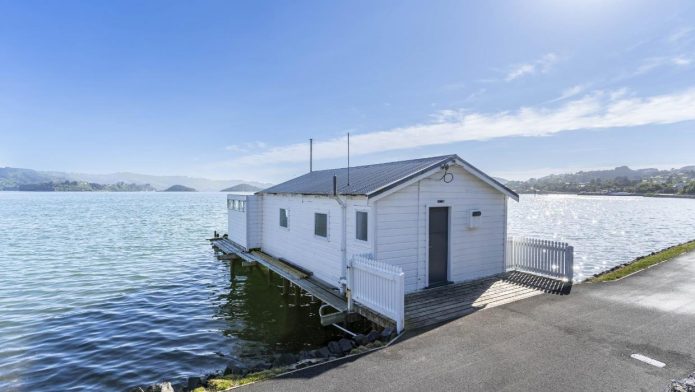PHOTO: Murray Hill provides accommodation to those who have none.Ollie Bourguignon
The Last Stop Before Homelessness: Murray Hill and Christchurch’s Housing Crisis
Some call Murray Hill a slumlord. Others see him as a last resort for those with nowhere else to turn. In a city facing a severe shortage of emergency housing, Hill’s properties are often the final stop before the streets.
A Life on the Margins
Kyle, 45, clutches his small collection of worn-out toys. “They’re my family,” he says, introducing each one. Lambie, patched up with a sticking plaster over one eye, is the leader. Matilda, a red-smiling doll with pigtails, is his Muhammad Ali. April, a ceramic doll, has an addiction problem, he chuckles.
His reality is stark. The room is cold despite the warm Canterbury weather. The walls bear the marks of previous tenants, and a draft seeps through a 1930s wooden window, which bleeds mold in winter. Still, Kyle considers himself lucky—his room comes with a small, dark, but private ensuite.
A former musician, Kyle has been living in a run-down 22-room boarding house overlooking Lyttelton Harbour since December. The weekly rent of $250 is steep, but he has no alternatives. He’s exhausted his welcome with other landlords, mostly due to his drinking and drug use.
“I wouldn’t mind if I died in my sleep,” he admits. “I don’t think I’ll see 50.”
The Man Behind the Rentals
Murray Hill is not your typical property mogul. A craggy-faced upholsterer turned landlord, he acquired many of his 17 Christchurch and Lyttelton properties cheaply after the 2011 earthquake. The Cressy Terrace boarding house, now valued at $1.5 million, was purchased for under $400,000.
Critics call him an opportunistic slumlord, cashing in on substandard housing. But for social agencies struggling to place Christchurch’s most vulnerable, Hill offers a lifeline.
“I take the people no one else will,” he says, listing agencies that turn to him for housing: the Salvation Army, MSD, Hillmorton Hospital, the Christchurch City Mission, Housing First, and even prisons.
A Controversial Figure
Hill acknowledges making around $20,000 a week in rent but insists expenses—including taxes, mortgages, and legal fees—eat into the profits.
Despite his wealth, he lives among his tenants, fixing problems as they arise. His rentals, he claims, are livable if tenants maintain them.
“I can deal with mold if people tell me about it. Rats? If you leave rubbish inside, what do you expect?”
He has only ever refused one tenant. “He was a murderer and a rapist. That’s where I draw the line.”
A System Under Strain
Melinda, from the Prisoners’ Aid and Reintegration Society (PARS), has no choice but to rely on landlords like Hill.
“When I started here, we avoided slum landlords. But now, there’s no other option. Otherwise, people are literally on the streets.”
With housing insecurity soaring, even emergency shelters are full. Each day, Melinda faces the agonizing reality of handing out sleeping bags to those with nowhere else to go.
The stigma surrounding ex-convicts makes housing even harder. “If landlords hear an Australian accent, they assume someone’s a 501 deportee and refuse to rent.”
A Growing Crisis
The city’s social housing sector is overwhelmed. The Ministry of Social Development’s register lists 1,500 people waiting for accommodation. The Christchurch Methodist Mission (CMM) is now prioritizing over-65s, the fastest-growing demographic in need.
Jill Hawkey, CMM’s executive director, calls it a “slow train crash.” The number of pensioners without homes is expected to double in 25 years.
Despite the government’s plan to build 1,500 new homes annually, frontline workers believe it won’t be enough. Housing Minister Chris Bishop declined to comment for this story.
The Struggle Continues
Meanwhile, at the boarding house, new tenants arrive—some just out of prison. Kyle keeps to himself, wary of losing the only roof over his head.
Men like him are the hardest to house, says Christchurch City Missioner Corinne Haines. Single, struggling with addiction or mental health issues, they often fall through the cracks.
With emergency motels closing, families are prioritized, leaving men like Kyle with nowhere to go. The system is failing them.
Hill shrugs at his critics. “Where else are they going to live?”
For many, the answer is nowhere.
SOURCE: STUFF









